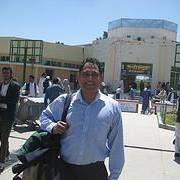The LA Times reports attorney Browne saying:
"People on our staff in Afghanistan went to the hospital where there supposedly were eyewitnesses to this " and we were told by the prosecutors to come back the next day, which is fine. We went back the next day, and they'd all been released from the hospital and they'd all been scattered throughout Afghanistan. That was a violation of the trust we had in the prosecutors,"...
"We've been misled greatly". They were promised to be there, and they were not," he said, adding that there isn't much hope of finding the witnesses now. "People just disappear into the Afghan countryside."
Finally the Global Post, a project of long-time Boston Globe journalist Charles Sennott, turns in a report which seems to attempt to discount the value of Afghan witness testimony, but in the end relates detail from a witness which corroborates the behavior of soldiers intent on committing war crimes:
"Baran's brother was killed in the shooting spree, but he didn't see the shooting happen. Baran said he told Karzai what his sister-in-law, who was at the scene, had told him.
When GlobalPost asked Baran to speak directly with his sister-in-law, he initially refused.
"You don't need to talk her," Baran said. "I did, and I can tell you the story."
Eventually Baran relented, allowing GlobalPost to interview her by phone.
Massouma, who lives in the neighboring village of Najiban, where 12 people were killed, said she heard helicopters fly overhead as a uniformed soldier entered her home. She said he flashed a "big, white light," and yelled, "Taliban! Taliban! Taliban!"
Massouma said the soldier shouted "walkie-talkie, walkie-talkie." The rules of engagement in hostile areas in Afghanistan permit US soldiers to shoot Afghans holding walkie-talkies because they could be Taliban spotters.
"He had a radio antenna on his shoulder. He had a walkie-talkie himself, and he was speaking into it," she said."
BBC says villagers say they heard helicopters in the night, explained by "correspondents" in the same report by the fact that helicopters are heard often in that part of the country. However helicopters in support of an operation would be distinctly closer and louder than those passing by at altitude.
"A woman in one of the targeted villages told the BBC she first heard helicopters at 02:00 and then gunfire. Others said helicopters and gunfire could be heard from midnight....Some villagers say that helicopters were flying overhead as the killings took place. Many locals appear to believe that they were in fact supporting the operation rather than trying to stop the gunman.
But correspondents say helicopters are frequently heard overhead in parts of the country."
Reports of Bales' testimony and behavior seem an intriguing mix of admissions to guilt and confusion. Reuters:
"Army Staff Sgt. Robert Bales initially asserted that he had shot several Afghan men outside a U.S. combat outpost in southern Afghanistan on March 11 and did not mention that a dozen women and children were among the dead, according to a senior U.S. official briefed on the case.
Next Page 1 | 2 | 3 | 4 | 5 | 6 | 7
(Note: You can view every article as one long page if you sign up as an Advocate Member, or higher).





